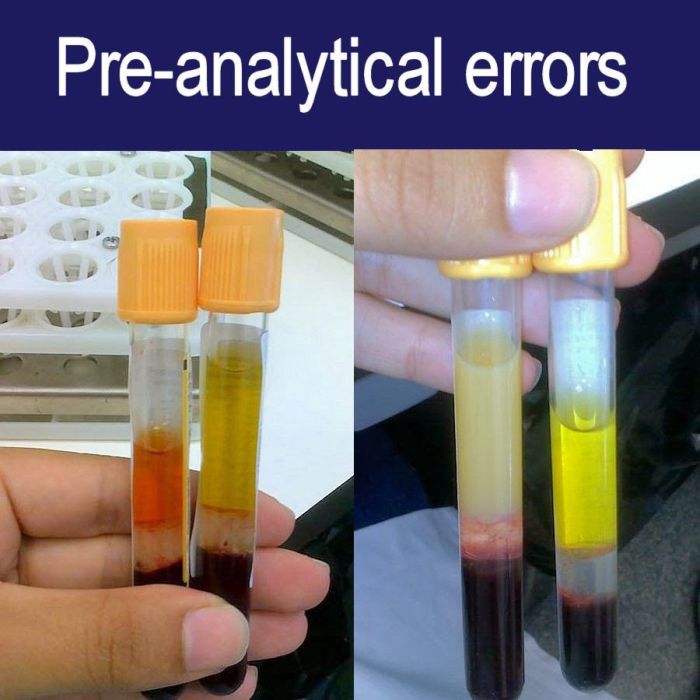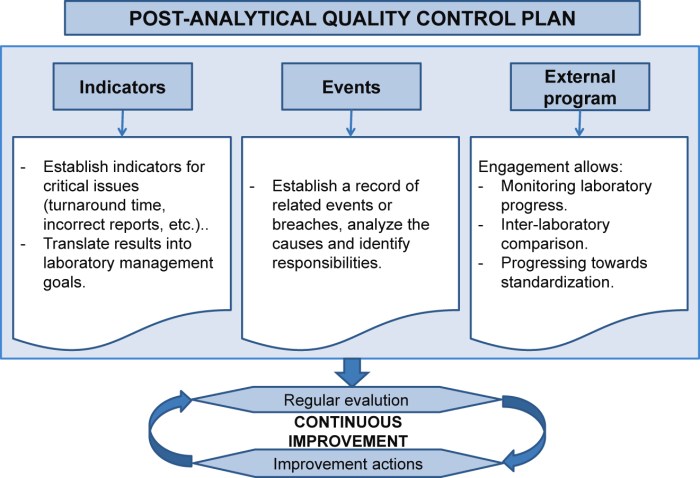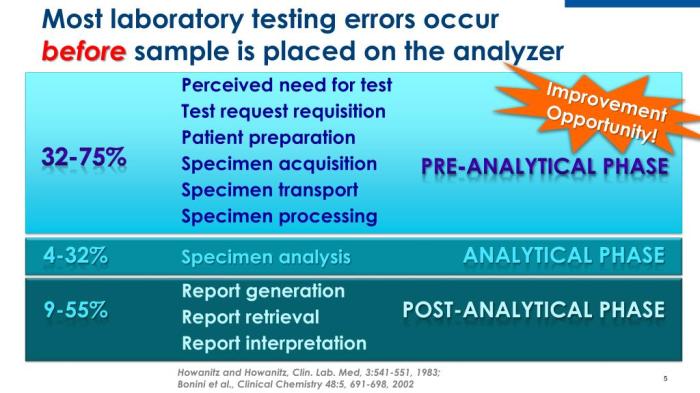With pre-analytical analytical and post analytical errors ppt at the forefront, this paragraph opens a window to an amazing start and intrigue, inviting readers to embark on a storytelling gaya akademik dengan tone otoritatif filled with unexpected twists and insights.
The exploration of pre-analytical, analytical, and post-analytical errors in laboratory testing unveils the critical importance of accuracy and reliability in ensuring patient safety and optimal healthcare outcomes.
This comprehensive overview delves into the diverse range of errors that can occur throughout the laboratory testing process, shedding light on their potential impact on patient care. By understanding the sources, types, and consequences of these errors, we can implement effective strategies to minimize their occurrence and ensure the delivery of high-quality laboratory services.
Pre-analytical Errors

Pre-analytical errors occur before the laboratory analysis begins and can significantly impact test results. These errors can arise from various sources, including patient preparation, specimen collection, and transportation.
Common Pre-analytical Errors
- Incorrect patient identification
- Improper specimen collection techniques
- Inadequate specimen volume or incorrect sample type
- Delayed or improper specimen transportation
Impact of Pre-analytical Errors, Pre-analytical analytical and post analytical errors ppt
- Inaccurate test results
- Misdiagnosis or delayed diagnosis
- Unnecessary patient procedures or treatments
- Increased healthcare costs
Minimizing Pre-analytical Errors
- Establish clear patient identification protocols
- Train staff on proper specimen collection and handling techniques
- Provide standardized specimen collection kits
- Implement electronic ordering and tracking systems
Analytical Errors

Analytical errors occur during the laboratory analysis itself and can result from various factors, including instrument malfunctions, reagent issues, or human error.
Types of Analytical Errors
- Random errors:Inherent variability in the analytical process, leading to inconsistent results.
- Systematic errors:Consistent biases in the analytical process, causing results to be consistently higher or lower than the true value.
Quality Control Measures
- Internal quality control: Using control samples to monitor instrument performance and reagent stability.
- External quality control: Participating in proficiency testing programs to compare results with other laboratories.
- Regular instrument calibration and maintenance
- Proper staff training and certification
Post-analytical Errors: Pre-analytical Analytical And Post Analytical Errors Ppt

Post-analytical errors occur after the laboratory analysis is complete and can arise during result interpretation, reporting, or communication.
Common Post-analytical Errors
- Transcription errors in reporting results
- Incorrect interpretation of test results
- Delayed or lost results
- Failure to communicate critical results promptly
Consequences of Post-analytical Errors
- Patient harm due to incorrect treatment decisions
- Delayed or missed diagnoses
- Increased healthcare costs
- Loss of patient confidence in the laboratory
Reducing Post-analytical Errors
- Use electronic reporting systems to minimize transcription errors
- Provide clear guidelines for result interpretation
- Establish protocols for prompt reporting of critical results
- Train staff on effective communication skills
Question & Answer Hub
What are the most common pre-analytical errors?
Common pre-analytical errors include specimen collection errors (e.g., incorrect sample type, improper storage), patient identification errors, and transcription errors during sample processing.
How can analytical errors be minimized?
Analytical errors can be minimized through the use of standardized operating procedures, regular equipment calibration, and participation in proficiency testing programs.
What are the potential consequences of post-analytical errors?
Post-analytical errors can lead to incorrect interpretation of results, delayed reporting, and inappropriate patient management, potentially compromising patient safety and health outcomes.